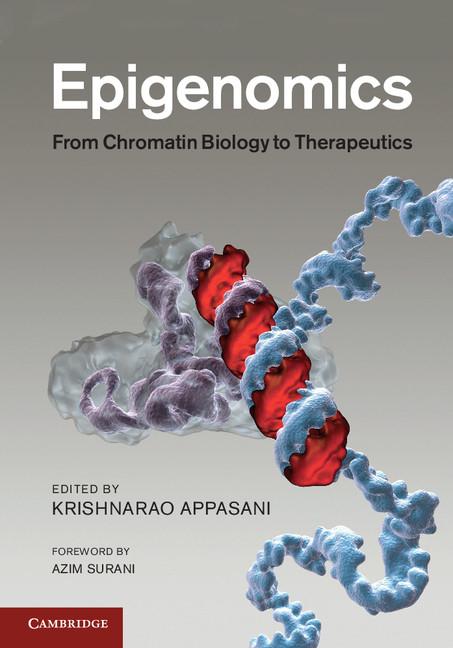
Zustellung: Fr, 09.05. - Di, 13.05.
Versand in 1-2 Wochen
VersandkostenfreiBestellen & in Filiale abholen:
Experts from academia and both the biotechnology and pharmaceutical industries introduce biological, medical and methodological aspects of the emerging field of epigenomics.
Inhaltsverzeichnis
List of contributors; Foreword; Preface; Part I. Basics of Chromatin Biology and Biochemistry: 1. Introduction to epigenomics; 2. Epigenetics and its historical perspectives; 3. Functional networks of human epigenetic factors; 4. Nucleosome positioning in promoters: significance and open questions; 5. Chemical reporters of protein methylation and acetylation; 6. Long non-coding RNA in epigenetic gene silencing; Part II. Epigenomic Imprinting and Stem Cells: 7. Active DNA demethylation - the enigma starts in the zygote; 8. Histone modifications of lineage specific genes in human embryonic stem cells during in vitro differentiation; 9. Epigenetic stability of human pluripotent stem cells; 10. Impact of CpG methylation in addressing adipose derived stem cell differentiation towards the cardiac phenotype; 11. Regulation of stem cell epigenome by REST; 12. MicroRNAs in embryonic stem cells; 13. Regulation of timing of replication; Part III. Epigenomic Assays and Sequencing Technology: 14. Detection of CpG methylation patterns by affinity capture methods; 15. Genome-wide ChIP-DSL profiling of promoter methylation patterns associated with cancer and stem cell differentiation; 16. Quantitative, high-resolution CpG methylation assays on the pyrosequencing platform; 17. DNA methylation profiling using Illumina BeadArray platform; 18. Advances in capillary electrophoresis-based methods for DNA methylation analysis; 19. Genome-wide methylome analysis based on new HT sequencing technology; 20. 3-D quantitative DNA methylation imaging for chromatin texture analysis in pharmacoepigenomics and toxicoepigenomics; Part IV. Epigenomics in Disease Biology: 21. Cancer classification by genome-wide and quantitative DNA methylation analyses; 22. Promoter CpG island methylation in colorectal cancer: biology and clinical applications; 23. The epigenetic profile of bladder cancer; 24. Genome-scale DNA methylation analyses of cancer in children; 25. The epigenetics of facioscapulohumeral muscular dystrophy; 26. Modulating histone acetylation with inhibitors and activators; Part V. Epigenomics in Neurodegenerative Diseases: 27. Study design considerations in epigenetic studies of neuropsychiatric disease; 28. Epigenetic regulation in human neurodevelopmental disorders including autism, Rett syndrome and epilepsy; 29. The neurobiology of chromatin-associated mechanisms in the context of psychosis and mood spectrum disorders; 30. Genome-wide DNA methylation analysis in patients with familial ATR-X mental retardation syndrome; 31. Kinases and phosphatases in the epigenetic regulation of cognitive functions; Part VI. Epigenetic Variation, Polymorphism and Epidemiological Perspectives: 32. Epigenetic effects of childhood abuse on the human brain; 33. X-linked expressed SNPs and dosage compensation; 34. Epigenomic diversity of colorectal cancer; 35. Epigenetic epidemiology: transgenerational responses to the environment; Index.
Produktdetails
Erscheinungsdatum
02. August 2012
Sprache
englisch
Seitenanzahl
574
Herausgegeben von
Krishnarao Appasani
Verlag/Hersteller
Produktart
gebunden
Gewicht
1157 g
Größe (L/B/H)
250/175/35 mm
ISBN
9781107003828
Entdecken Sie mehr
Bewertungen
0 Bewertungen
Es wurden noch keine Bewertungen abgegeben. Schreiben Sie die erste Bewertung zu "Epigenomics" und helfen Sie damit anderen bei der Kaufentscheidung.









